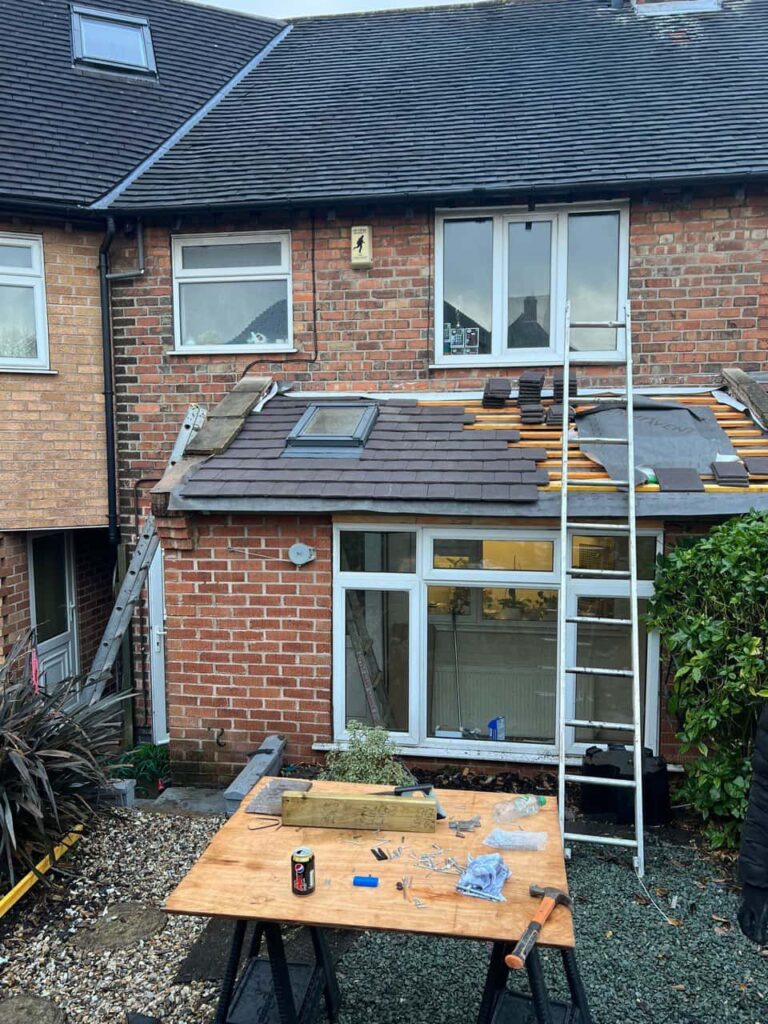Roof tiles are designed to withstand decades of weathering, but even the strongest materials eventually begin to show signs of fatigue. In areas like Tisbury, Wiltshire—where properties face seasonal rain, wind exposure, and fluctuating temperatures—roof tiles can gradually weaken, crack, or shift over time. While small repairs may temporarily address individual issues, long-term tile weakness often requires a more comprehensive solution: a full roof replacement.
At MCM Roofing Repairs Tisbury, we help homeowners identify when their tiled roof has reached the point where replacement is the most effective and reliable way to restore the roof’s strength, stability, and long-term performance.
Understanding Long-Term Tile Weakness
Tile weakness usually develops gradually and can be difficult to detect in the early stages. The most common causes include:
- Natural material ageing
- Repeated cycles of freezing and thawing
- Long-term water absorption
- Moss and lichen growth
- Wind uplift and storm damage
- Movement of the underlying structure
- Historic repairs that are no longer holding
Over time, these factors compromise the integrity of the roof. Weak tiles may break under pressure, slip out of position, or allow water to penetrate the layers beneath.
Once tile deterioration becomes widespread, repairs can become frequent, ineffective, and costly in the long run.
Why Roof Replacement Is the Most Effective Solution
A roof replacement does far more than swap out damaged tiles. It addresses the underlying issues that create long-term weakness, ensuring the entire system is renewed and capable of withstanding future weather conditions.
1. Replacing All Weak and Ageing Tiles at Once
When a roof is replaced, every tile—strong or weak—is removed. This eliminates all the underlying problems associated with ageing materials. Instead of repairing isolated sections, a replacement ensures every part of the roof benefits from new, durable tiles installed to modern standards.
This provides consistent strength across the entire surface rather than patchwork resilience.
2. Installing a New, High-Quality Underlay
Many tile weaknesses stem not from the tiles themselves, but from aged, torn, or sinking underlay. A replacement allows roofers to:
- Remove the old underlay
- Install a modern, watertight membrane
- Improve insulation and airflow
- Strengthen the roof’s internal structure
This new foundation improves the long-term reliability of the tiles and reduces risks of future leaks.
3. Fixing Structural Issues Beneath the Tiles
Long-term tile weakness often develops because of hidden defects below the roof surface. A replacement gives professionals access to the roof structure, allowing them to identify and resolve:
- Rotting battens
- Sagging timbers
- Loose fixings
- Poor ventilation
- Damp or water-damaged areas
Repairing these issues during a roof replacement ensures the new tiles are installed securely and safely.
4. Improving Weather Resistance
Tisbury’s seasonal weather can be tough on older roofs. A replacement gives homeowners the benefit of:
- Stronger, modern tiles
- Improved wind resistance
- Better moisture protection
- Enhanced durability in changing climates
This strengthens the roof’s ability to resist long-term wear and reduces the likelihood of future problems.
5. Restoring Balanced Weight Distribution
When tiles weaken or crack, the overall distribution of weight across the roof changes. This can lead to shifting, slipping tiles and uneven pressure on the supporting structure.
A full replacement resets the roof, allowing weight to be evenly and safely distributed across new, properly secured tiles.
6. Eliminating Repeat Repairs
The cost and time required for ongoing repairs can quickly exceed the value of installing a new roof. When tile weakness is widespread, replacement provides a long-term solution that eliminates the cycle of:
- Spot repairs
- Emergency call-outs
- Temporary fixes
- Repeated leak issues
A new roof gives homeowners reliable peace of mind.
Why Tiled Roofs in Tisbury Need Special Attention
Properties in Tisbury and surrounding Wiltshire villages often feature traditional tiled roofs that have been exposed to decades of varied weather conditions. These roofs require careful, experienced handling, especially when age-related deterioration becomes apparent.
Local environmental factors—such as heavy rainfall, rural tree debris, and winter frosts—can accelerate tile fatigue. Roof replacement helps restore long-term durability in line with the area’s demands.
The Value of Professional Assessment
Before deciding on a replacement, a thorough inspection is essential. A professional roofer can identify:
- The extent of tile weakening
- The condition of the underlay
- Structural issues affecting stability
- Signs of long-term moisture ingress
- Any risks to surrounding property features
At MCM Roofing Repairs Tisbury, we provide honest, clear advice to help homeowners choose the most effective long-term solution for their roof.
Conclusion
Long-term tile weakness is more than a cosmetic issue—it often signals deeper problems within the roof structure. While repairs may address short-term concerns, a full roof replacement is the most reliable way to restore strength, eliminate ongoing deterioration, and protect your home for decades to come.
If you are concerned about weakened tiles or noticing repeated roof issues, MCM Roofing Repairs Tisbury is here to help. Contact us today to arrange a professional assessment and take the first step towards a stronger, more resilient roof.
Call us on: 01747 440 678
Click here to find out more about MCM Roofing Repairs Tisbury
Click here to complete our contact form and see how we can help with your roofing needs.

